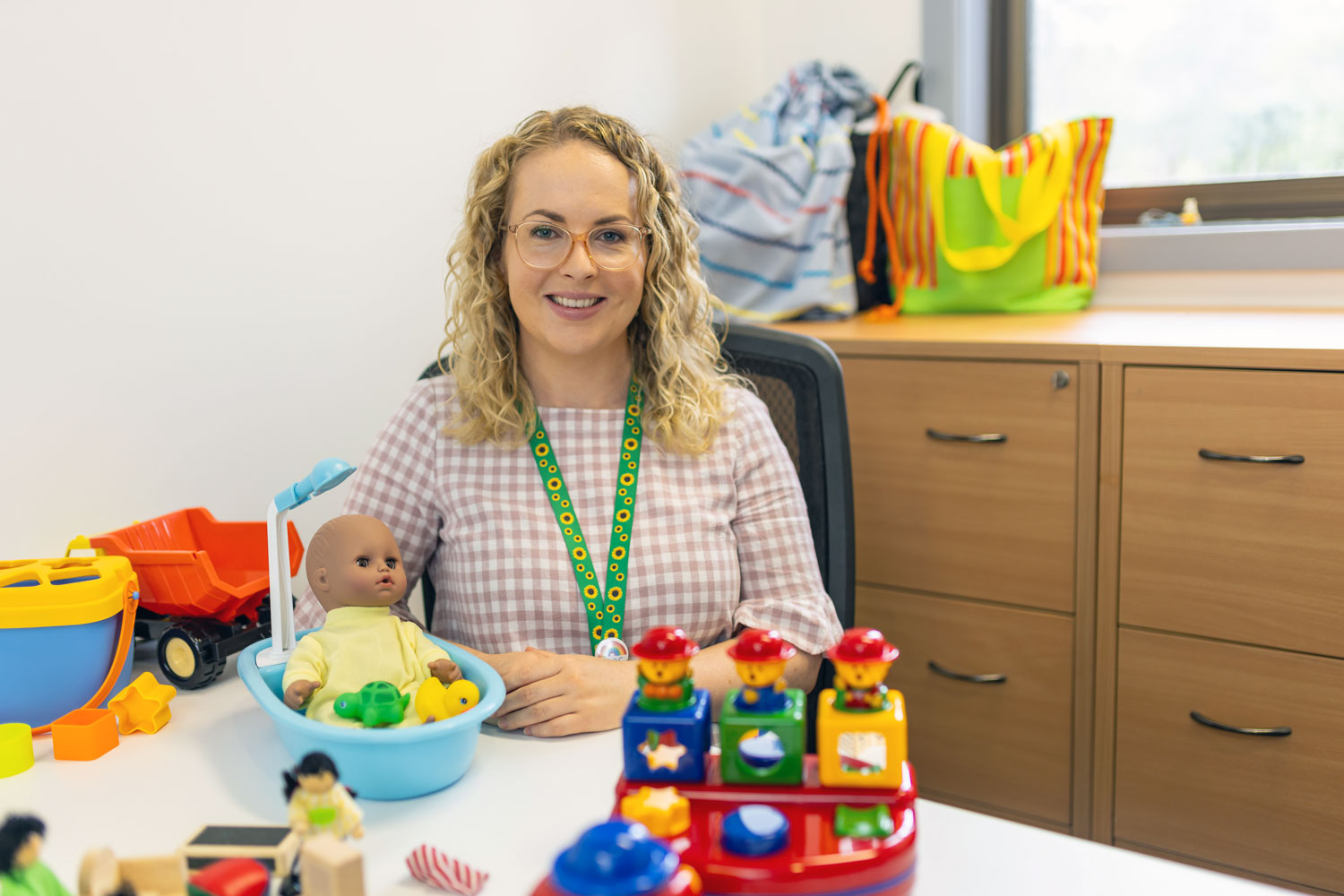Researcher Highlights
Realigning the priorities of autism research for real-life benefits
Dr Olivia Whalen
Psychology and child development researcher Dr Olivia Whalen is working side by side with autistic people to ask the questions that really matter. She’s recently established Newcastle’s first neuroadvisory group to increase inclusion.

With a Bachelor of Psychology and a Doctor of Philosophy in Psychology, Olivia has always found people endlessly fascinating.
Her research background is in asthma, child development, mental health and Aboriginal and Torres Strait Islander health and education. But today, Olivia’s main focus is autism and ways that autistic people and their families can be better supported from the beginning.
Olivia also looks at the coexistence of physical health issues and autism, in particular asthma and pain, and the parenting experiences of autistic people—areas that are of interest to her personally.
Neurodiversity in numbers
It’s said that in Australia, boys are 3.5 times more likely to be diagnosed with autism than girls.
“We know that women and girls struggle with having their autism identified, with many autistic women not being identified as autistic until adulthood, with some only being identified when seeking diagnoses for their children,” says Olivia.
She thinks this is due to several factors.
“The diagnostic tools for autism were traditionally based on a predominantly male sample. Women and girls camouflage (mask/hide) their autistic traits in social settings more than males by copying body language gestures or forcing eye contact so that they can ‘blend in’.”
“There can also be bias or gendered expectations for what autism should ‘look like’ for boys versus girls that may come into a clinician’s decision to diagnose or someone’s choice to pursue a formal diagnosis,” she continues. “The consequences of this are huge for mental health.”
Importantly, she acknowledges that this only considers sex assigned at birth. There are many sex and gender identity variations in autism that need to be considered, too.
A shift in autism research
Olivia’s interest in autism stemmed from a shift in thinking around research in this area.
“A lot of prior autism research was looking at the biology or causes of autism or designing ‘interventions’ that ‘improved’ the characteristics,” explains Olivia.
“Themes of ‘fixing’, ‘changing’ and ‘curing’ autism through research were common, as was the view that autistic people were inferior to non-autistic people.”
Essentially, there was a huge mismatch between the priorities of autism research and the priorities of people with autism. However, the neurodiversity and autistic self-advocacy movements really challenge these assumptions.
“Recently, there’s been a real, positive shift in autism research to make it more inclusive and respectful and to enhance autistic wellbeing. Researchers are being held accountable to produce real-life benefits for autistic people.”
“We’re being asked questions such as ‘Is your research really helping?’ and ‘What benefit will it have for me?”
This shift in thinking is what excited Olivia. She was eager to work side by side with autistic people, co-producing research together and working in partnership for better outcomes.
From parenting to feeling pain
When it comes to exploring the parenting experience of autistic people as well as physical pain, there’s a lot to learn, Olivia explains.
To date, many studies have looked at the experience of parents of children with autism but not at the experience of autistic parents themselves.
She’s also finding new, neuroaffirming ways of looking at pain. For example, some health practitioners assume that autistic people don’t feel pain or that they don’t respond as strongly as neurotypical people do.
“Underresponding to pain is even part of the diagnostic checklist for autism,” says Olivia. “However, if you talk to any autistic person, you’ll know this is far from true.”
“My research is looking at the autistic experience of certain health conditions, so that we can upskill health practitioners to understand and provide better care for their autistic patients.”
“Often, autistic people are misdiagnosed as their symptoms are misinterpreted, which means they miss out on necessary treatments and supports.”
Newcastle’s first neuroadvisory group
Because she doesn’t have autism herself, Olivia knows that it’s critical that she partners with those with the diagnosis to ensure she’s doing research respectfully and in a way that will benefit.
Along with autistic Professor Jodie Simpson, she’s established Newcastle’s first neuroadvisory group to help guide autism research at the University. The group, comprising autistic and neurodivergent community members, will help set research priorities and co-produce autism research.
“At this stage, we’re seeking funding and asking people who are diagnosed or self-identify as neurodivergent who would like to be a part of the neuroadvisory group to reach out,” says Olivia.
These people will be added to a standby list so that subgroups can be formed for future projects. The subgroups would include different types of people with autism, for example, situational non-speaking, late identified and parents.
They want the group to be a resource for researchers and educators, one where they can present a grant or an idea, some results and get consumer input.
The passion is the people
“Ultimately, I want to do research that matters to people. There’s something very heart-warming about presenting a research idea to an autistic person for the first time and them saying, ‘I wish this had been done years ago’, shares Olivia.
For so many years, autistic people just didn’t get a say in what got researched, she continues. But this is slowly changing.
The hope is that through this new neuroadvisory group, this ability to do research that really matters to autistic people and delivers real-life benefits will be advanced.
The University of Newcastle acknowledges the traditional custodians of the lands within our footprint areas: Awabakal, Darkinjung, Biripai, Worimi, Wonnarua, and Eora Nations. We also pay respect to the wisdom of our Elders past and present.
